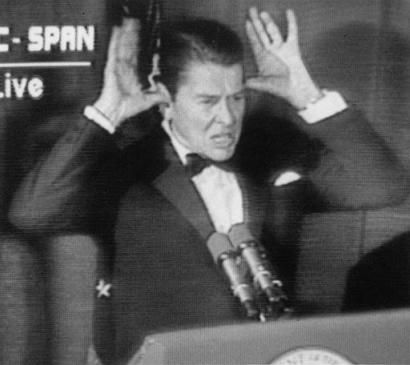It’s Gay Pride Week and Canada Day’s coming up, so what better time to draw your attention to the website, Lesbians Who Look Like Justin Bieber — which, the site itself explains, “is EXACTLY what it sounds like.” Lesbians who look like Justin Bieber, by the way, are called “biebians.”
Category Archives: Popular Culture
Todd Rundgren
httpv://www.youtube.com/watch?v=_8kEUP_40Ak
“Hello, It’s Me”
Today is singer-songwriter and record producer Todd Rundgren‘s birthday (born 1948). A fact that is intended more to delight than instruct.
Kim and Kelley Deal
httpv://www.youtube.com/watch?v=Hvi4iA3PnKE
Kim Deal and the Pixies, “Here Comes Your Man”
Today is the birthday of the Deal sisters, Kim and Kelley (born 1961). Yes, yes, this is strictly a personal indulgence. But if relevance is required, here’s Frye in a 1978 interview responding to a question about the relationship between scholarship and popular culture.
I think that what interest I have in popular culture has largely grown out of my teaching interest. That is, I have always said that if you’re faced with a reluctant ten-year-old in a classroom and you’re trying to teach him literature and he prefers something he saw on TV the night before, the way to approach him is not to say, “Well this is good for you and that’s bad for you,” but to say, “Look, there are certain resemblances in structure between what I’m trying to give you and what you just saw.” I think that pedagogically that’s reasonably sound. That’s really where my interest in popular culture comes from–the fact that it records the same conventions and genres as serious literature, which of course keeps continually growing out of popular roots, just as Shakespeare grew out of the popular theatre. (CW 24, 422-3)
Saturday Night Video: Music of the Third Wave
Tina Fey as Liz Lemon drunk dialing while singing “You Oughta Know”
On a recent episode of 30 Rock, Tina Fey‘s sitcom that brings the celebration of geek girl ascendancy into the mainstream, the ring tone on Liz Lemon’s cell phone is revealed to be “Fuck the Pain Away” by Canadian electropunk performance artist Peaches. It’s such an excellent inside joke that this is probably a good time to remind ourselves why everyone should get it.
Third Wave feminism might not have had the broad cultural impact it has without the wide open music scene of the 90s. And it arguably was helped along in the previous decade by Madonna, who made sure everybody understood that her sexuality was a source of power, not a cause of subordination. The music of the Third Wave — with its riot grrrl, queercore, and lo-fi, DIY ethic — has done much to make permeable the barriers on female identity.
After the jump, some milestones in the music that has provided the variables for XX.
Walt Whitman
httpv://www.youtube.com/watch?v=yBX2L_Re5Cc
A wax recording of Whitman in 1890
Today is Walt Whitman‘s birthday (1819 – 1892).
Frye in The Modern Century:
When the Romantic movement began, there was one important primitive influence on it, that of the oral ballads, which began to be collected and classified at that time. The oral ballad makes a functional use of refrains and other strongly marked patterns of repetition, which correspond to the emphasis on design in the primitive pictorial arts. The fact that it depended for survival on an oral tradition meant that whatever personal turns of phrase there may originally have been in it were smoothed out, the poem thus acquiring a kind of stripped poetic surface quite unlike that of written poetry. The literary ballads which imitate these characteristics — the Lyrical Ballads of Wordsworth and Coleridge, Blake’s Mental Traveller, Keats’s La Belle Dame Sans Merci — come about as close as poetry can come to reproducing directly the voice of the creative powers of the mind below consciousness, a voice which is uninhibited and yet curiously impersonal as well. This was also the “democratic” voice that Whitman attempted to reproduce, and Whitman is the godfather of all the folk singing and other oral developments of our time which cover so large an area of contemporary popular culture. (CW 11, 54)
Bob Dylan
httpv://www.youtube.com/watch?v=YwSZvHqf9qM
“Tangled Up in Blue,” live
Today is Bob Dylan‘s birthday (born 1941).
Frye alluded to Dylan on a number of occasions. Here in a 1969 interview he cites Dylan to illustrate how popular culture has facilitated the teaching of literary criticism:
I think that in our day the communications gap between seriousness and lightness is breaking down… And I found in my teaching of literature that a person who knows folk singers like Bob Dylan or the Mothers of Invention has far less difficulty with symbols in poetry. Twenty years ago you had to teach students the language of symbolism which they often just refused to learn. Nowadays young people know that language. (CW 24, 110)
And here, ten years later, he responds to the suggestion that it is “ludicrous that people like Bob Dylan are considered poets”:
Oh, I think Bob Dylan is a poet. I am quite interested in the folk-song idiom as a poetic idiom. It’s a revival of an oral tradition in poetry which disappeared for centuries. Poetry got too badly bogged down with books, and I think it’s a very healthy thing when poetry becomes something that can be recited to an audience with a musical background. (CW 24, 474)
Todd Alcott: “Television is a Drug”
httpv://www.youtube.com/watch?v=jaWsewOKhgw
Further to Joe’s post, Todd Alcott’s “Television is a Drug”.
Frye on Reagan, the Pope, and the Illusion of Television
Further to the previous post, here is some cultural studies avant la lettre: Frye on Reagan, the Pope, and “the prison of television.”
[282] Television brings a theatricalizing of the social contract. Reagan may be a cipher as President, but as an actor acting the role of a decisive President in a Grade B movie he’s I suppose acceptable to people who think life is a Grade B movie. The Pope, whose background is also partly theatrical, is on a higher level but the general principle still holds. It goes with reaction, identifying the reality with the facade. Wouldn’t it be wonderful if, just for once, it could be true that Father knows best? Emotional debauch of father-figuring. (Notebook 27)
[492] American civilization has to de-theatricalize itself, I think, from the prison of television. They can’t understand themselves why they admire Reagan and would vote for him again, and yet know that he’s a silly old man with no understanding even of his own policies. They’re really in that Platonic position of staring at the shadows on the wall of a cave. The Pope, again, is another old fool greatly admired because he’s an ex-actor who looks like a holy old man.
[493] Watching a television panel of journalistic experts discussing the (Bush-Dukakis) election, it seemed to me Plato’s cave again and Plato’s eikasia, or illusion at two removes–show business about show business. All one needs to know about such horseshit is how to circumvent whatever power it has. I’m trying to dredge up something more complex and far-reaching than just the cliché that elections today are decided by images rather than issues–they always were. It’s really an aspect of the icon-idol issue: imagination is the faculty of participation in society, but it should remain in charge, not passively responding to what’s in front of it. Where does idolatry go in my argument? End of Three? (Notebook 44)
[85] Why do Americans continue to cherish Reagan, including millions of Americans who know he’s an ass? I think they’re bored by their own indifference to the world, but can only focus their minds on a boob-tube leader. (Notebook 50)
Dirty Old Town
httpv://www.youtube.com/watch?v=kVUZuVZWHkk
It’s St. Patrick’s Day and we’re all Irish for today at least. So here’s a group that needs no introduction in an entirely Irish world, The Pogues.
“It’s Algonquin for ‘the good land'”
httpv://www.youtube.com/watch?v=GtqesudKxSA
On this date in 1948, Alice Cooper was born. Above is his classic meeting with Wayne and Garth in Wayne’s World.
For middle aged men like me who still remember defiantly adopting “I’m Eighteen” as an anthem at the age of 14, there’s a vintage 1971 live performance for you after the jump.


